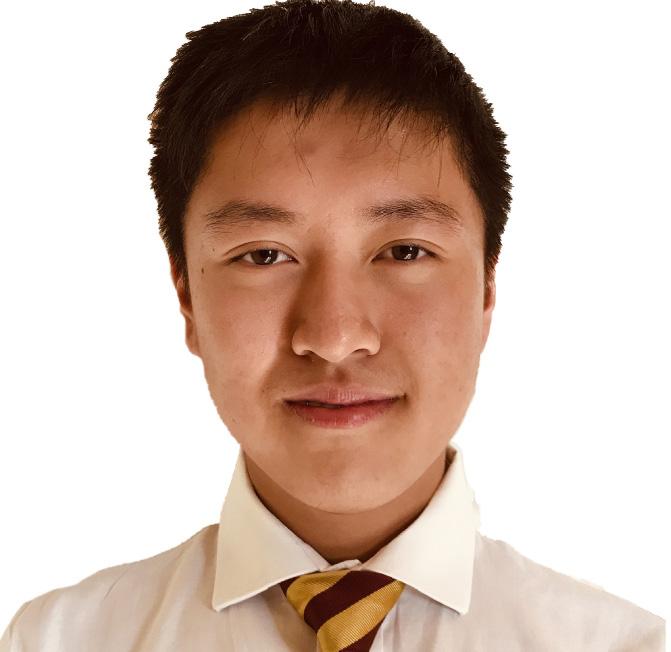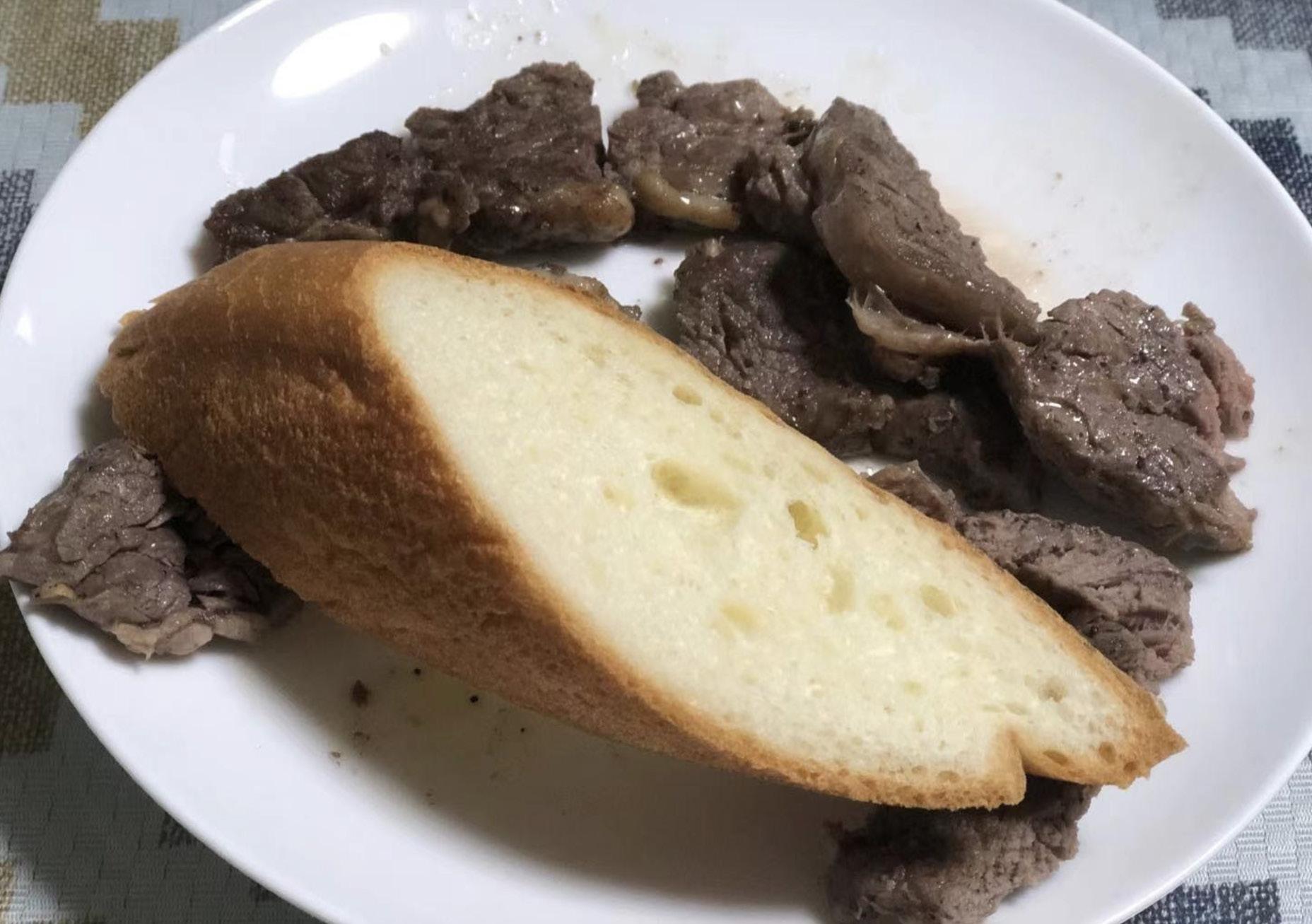the index · features
Page 5
features
April 2021
Julius Huang '22 lives simultaneously on two sides of the world
Gary Gao ’21
W
hen the clock hits 5:30 a.m., it is finally time to sleep. Every day, when a smudge of yellow appears next to the navy blue in the sky, Fifth Former Julius Huang finishes his day and goes to bed so that he can recharge his mind and prepare for the “next day”—another round of activities on his schedule. Since last March, like several other international students, Huang has been living like this because he faces a major challenge: he lives in Shanghai, China, which is over 7,300 miles away from the Haverford School and has a twelve-hour time difference from the Eastern United States. Normally, Huang sleeps when the sun is about to rise and gets up around 1 p.m. Sleeping during such abnormal times has negative impacts on his well-being. “The first problem is: how do you fall asleep when the sun is rising? The quality of sleep is quite bad… sometimes I need to take some Melatonin [a short-term treatment for insomnia] before sleep,” Huang says. “We cannot disobey the rules of nature. I usually feel more tired after I get up, and it makes me feel like not wanting to do the stuff on my schedule.” When Huang wakes up, it is well after his family members leave for work. Although he gets “what other family members are getting for lunch,” he has to “sit and eat alone,” unable to enjoy the time with family members or friends at school. “[With] the disrupted calendar, the meal just doesn’t taste as good,” Huang says. In the busy afternoon that starts at 2 p.m., Huang mostly dedicates his time to extracurricular activities because he cannot attend the normal meetings and practices. Huang has been playing violin for many years. He loves the instrument, which is why he works hard every day towards becoming
a better violinist by practicing three-to-four hours a day. “The major extracurricular activity I’m doing for school is orchestra,” he says, “but of course there is no way for me to play with other people in the orchestra at the same time.” Fortunately, there are some alternative activities. “The conductor sends out the pieces we are playing for the semester, so that we can practice at home according to the calendar, and we turn in some videos at certain times. Playing with others is fun, and I can learn [by doing it],” Huang says. “Not attending normal practices certainly does have negative impacts on me.” Sports is another issue. Huang was a skilled player on the golf team. “Now, I’m not doing any sports for school. I’m doing some sports on my own. I play golf not quite as often, because I need to make compromises on schedule conflicts. Sometimes [I] maybe only play once every two weeks,” Huang says. “It’s pretty bad for me.”
"It is hard for me to sleep right after school. I just keep doing my homework until in the early morning” JULIUS HUANG ’22 After a long afternoon, at 7:30 p.m., Huang has dinner with his family members. On the dinner table, he and his family talk and savor the meal. “I feel bad about missing other meals with my family; when they are at home I’m mostly in class, so dinner is the only thing I can enjoy with my family,” Huang says.
The caricaturist aims for a portrait Tyler Zimmer ’21
COURTESY OF MS. COURTNEY SELL
Courtney Sell draws at the renowned Diner En Blanc event
Julius Huang's simple midnight meal At 8:45 p.m., it is time to “go to school” for Huang. He logs into Google Meets every day, just like other virtual students, which means he faces the most common challenge for attending online classes. “In the junior year, a lot of classes, especially history, tend to be more conversational,” Huang says. “So it is not that easy for me to participate in discussions.” Huang encounters an internet challenge that never bothers U.S. students. He is not able to access services provided by Google in China without a VPN (Virtual Private Network) connection, which causes “slow internet speed and frequent disconnections” during classes for him. At 12:00 a.m., Huang is able to log off the Meet and eat something, just like his peers in the U.S., but he does not feel excited about having a midnight meal. “I have my midnight meals alone. I have to have some food and some tea to keep myself focused on studying later,” Huang says, “and they are also bad for my health. They make me put on more weight.” 3:00 a.m. marks the end of his night at school. “It is hard for me to sleep right after school. I just keep doing my homework until in the early morning,” Huang says. Eventually, at 5:30 again, he goes to sleep and prepares himself for another 24 hours of
A
s Sixth Formers’ inch closer to the next chapter of their lives, many seek mementos. Ms. Courtney Sell delivers on this wish, creating colorful caricatures that highlight more than a wide smile—they tell each student’s story. “I get so personal on these,” Ms. Sell said. “It’s fun because I can be so much more in depth.” This is no ordinary caricature. Each student received a form to fill out his interests, hobbies, and styles. Ms. Sell then followed up with a tenminute Zoom call to discuss the details. “Zoom has been awesome for me. I actually love doing it virtually,” she said. Students expressed the same feeling. The virtual process was smooth, efficient, and provided Ms. Sell with the details she needed to capture each student’s story. “She was really helpful, and I can’t wait to see what she makes,” Sixth Former Jonny Flieder said. This is Courtney’s fourth year drawing our Sixth Formers. She began her career as a professional caricature artist at Dorney Park in Allentown before earning a Bachelor of Fine Arts from Tyler School of Art at Temple University. Since then, she’s worked for the Philadelphia Zoo and Citizens Bank Park.
JULIUS HUANG ’22
an inverted schedule. Huang, like many other students who go to school internationally, does not choose to have such an abnormal daily life. “The travel ban is still there,” Huang says. The United States government currently forbids the entry of individuals that have been physically present in some countries within fourteen days prior to the arrival. China, Brazil, South Africa, and most countries in Europe are still on that list. Some groups of individuals, such as U.S. citizens, permanent residents, and their immediate family members, are exempted from the rule, but students are not among them. “If I want to return to the U.S., I have to go to another country for fourteen days, and I have to quarantine for another fourteen days after arriving,” Huang says, “It’s difficult to arrange, and I will have to waste a month of time on the trip.” Although the Biden Administration has not yet made any official moves regarding this rule, as the vaccination progress advances globally, Huang and his family see some hope in resuming his education in the U.S. in person. “I wish to go back to school after this pandemic ends,” Huang says, “and I think it is going to be easier to travel the next [school] year.”
Despite her extensive experience working for every type of event imaginable, Ms. Sell admitted that the Sixth Form portraits are some of her most challenging. “I spend a lot of time on these, at least an hour each. I feel like I am drawing your lives.”
"When you get your drawing back, I hope you feel that it is a snapshot of your life.” MS. COURTNEY SELL In order to finish in time, Ms. Sell plans to work over twelve hours each day, working hard for each of the nearly 130 Sixth Formers. To the students awaiting the final product, they should be confident that this memento will beat their expectations. Courtney is Yelp’s Best Caricaturist in Philadelphia. “It’s so rewarding for me to finish a project of this size. When you get your drawing back, I hope you feel that it is a snapshot of your life.”


